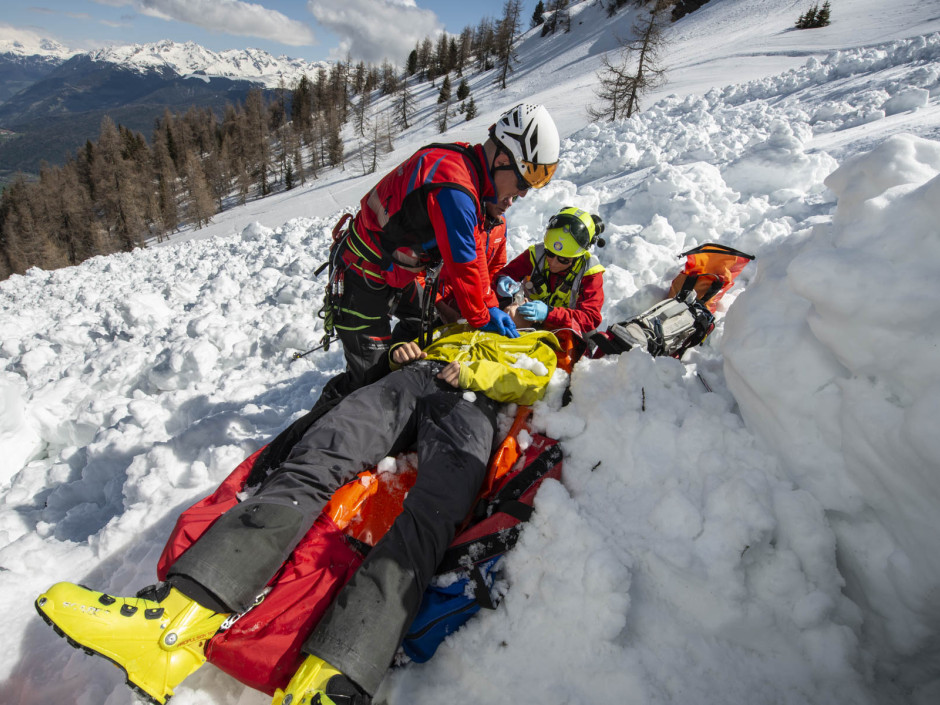“We talk about what we do not know, because that is the only way we can advance”.
Eurac Research has invited leading international experts in altitude medicine and emergency medicine to a one-day gathering in Bolzano on 5 April to explore research opportunities in the extreme climate simulator the terraXcube.
At 150 metres altitude under the summit of Mount Everest, three intensive care doctors take their own bloods – in an experiment into the impact of extreme oxygen deprivation in the blood. Thus Chris Imray, Sundeep Dhillon and Daniel Martin prove that a person can survive severe hypoxic conditions under certain circumstances. This is just one example of how research in altitude medicine and emergency medicine in the Alps is characterised by extreme physical conditions. Emergency situations on mountains are difficult to research because the conditions are so challenging to reproduce. However, the findings from altitude medicine have wide implications, for example, they also benefit people with diseases such as diabetes mellitus, high blood pressure and other circulatory diseases.
Along with Imray, Dhillon and Martin, the world’s leading experts in altitude medicine and Alpine emergency medicine are meeting in Bolzano on 5 April. The idea is to discuss questions concerning both research areas and to explore what research opportunities are opened up by the potential of the terraXcube. Unlike at the usual science conferences, where the emphasis is on knowledge transfer, the goal of this day is to facilitate an open and transparent discussion of ideas. Eurac Research’s Institute for Alpine Emergency Medicine organized the gathering and its director, Hermann Brugger explains: “Above all, we want to talk about what we don’t know. Only that brings us any further.” He observed that “one of the problems of high-altitude medical research is that we often only have small samples at our disposal, thus the important processes that occur in the body in cold or low oxygen conditions are poorly understood. This is why the terraXcube is so interesting for the invited experts because it simulates all climatic conditions on earth.”
Related Articles
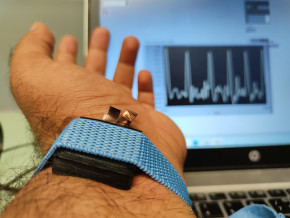
Tecno-prodotti. Creati nuovi sensori triboelettrici nel laboratorio di sensoristica al NOI Techpark
I wearable sono dispositivi ormai imprescindibili nel settore sanitario e sportivo: un mercato in crescita a livello globale che ha bisogno di fonti di energia alternative e sensori affidabili, economici e sostenibili. Il laboratorio Sensing Technologies Lab della Libera Università di Bolzano (unibz) al Parco Tecnologico NOI Techpark ha realizzato un prototipo di dispositivo indossabile autoalimentato che soddisfa tutti questi requisiti. Un progetto nato grazie alla collaborazione con il Center for Sensing Solutions di Eurac Research e l’Advanced Technology Institute dell’Università del Surrey.
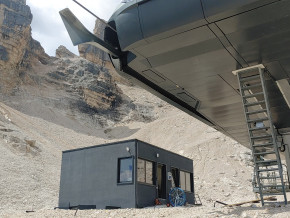
unibz forscht an technologischen Lösungen zur Erhaltung des Permafrostes in den Dolomiten
Wie kann brüchig gewordener Boden in den Dolomiten gekühlt und damit gesichert werden? Am Samstag, den 9. September fand in Cortina d'Ampezzo an der Bergstation der Sesselbahn Pian Ra Valles Bus Tofana die Präsentation des Projekts „Rescue Permafrost " statt. Ein Projekt, das in Zusammenarbeit mit Fachleuten für nachhaltiges Design, darunter einem Forschungsteam für Umweltphysik der unibz, entwickelt wurde. Das gemeinsame Ziel: das gefährliche Auftauen des Permafrosts zu verhindern, ein Phänomen, das aufgrund des globalen Klimawandels immer öfter auftritt. Die Freie Universität Bozen hat nun im Rahmen des Forschungsprojekts eine erste dynamische Analyse der Auswirkungen einer technologischen Lösung zur Kühlung der Bodentemperatur durchgeführt.
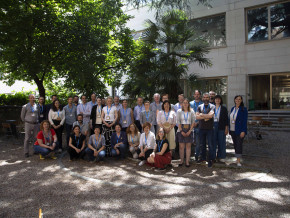
Gesunde Böden dank Partizipation der Bevölkerung: unibz koordiniert Citizen-Science-Projekt ECHO
Die Citizen-Science-Initiative „ECHO - Engaging Citizens in soil science: the road to Healthier Soils" zielt darauf ab, das Wissen und das Bewusstsein der EU-Bürger:innen für die Bodengesundheit über deren aktive Einbeziehung in das Projekt zu verbessern. Mit 16 Teilnehmern aus ganz Europa - 10 führenden Universitäten und Forschungszentren, 4 KMU und 2 Stiftungen - wird ECHO 16.500 Standorte in verschiedenen klimatischen und biogeografischen Regionen bewerten, um seine ehrgeizigen Ziele zu erreichen.
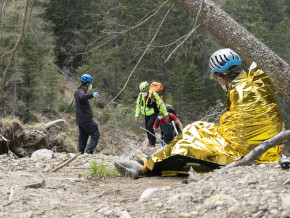
Erstversorgung: Drohnen machen den Unterschied
Die Ergebnisse einer Studie von Eurac Research und der Bergrettung Südtirol liegen vor.
